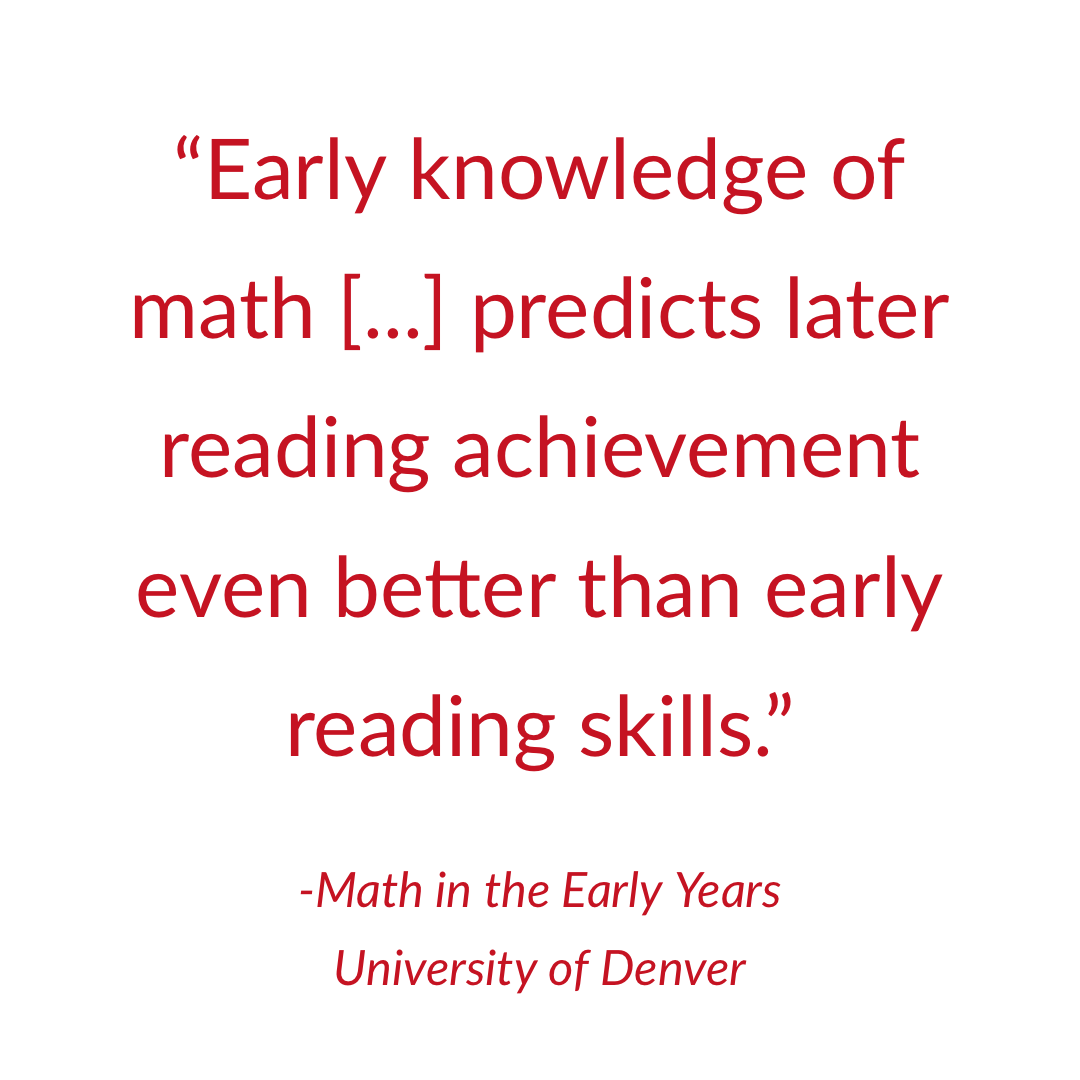Why Does Early Math Matter?
Every parent in my son’s pre-k class can tell you that it’s important to raise their children in a word-rich environment. The messaging to develop literacy skills early is loud and clear.
It’s so prevalent, in fact, that as a new mom with a six-month-old baby, my pediatrician told me it was time to start reading to him. “At six months?” I wondered.
But, ever the rule follower, I tried to get my son to stop chewing on the book and, instead, look at the pictures. Sure, it seems absurd to engage in a book-chewing battle with a six-month-old, but the advice about reading to your children is everywhere.
Contrast the reading advice with this: in the last four years of parenting, I haven’t received a single piece of advice on how to introduce math to my children.
So, why the silence around early childhood math?
The answer is that the US is behind in our valuing of early childhood mathematics. Consider this excerpt from the University of Denver article, Math in the Early Years:
Young children have a surprising capacity to learn substantial mathematics, but most children in the U.S. have a discouraging lack of opportunities to do so. Too many children not only start behind, but they also begin a negative and immutable trajectory in mathematics, with insidious long-term effects. These negative effects are in one of the most important subjects of academic life and also affect children’s overall life course.
The research reveals that a child’s early math skills are a strong predictor of not just later success in math, but also their future literacy skills. From Mathematica:
A large body of evidence shows a connection between being competent in early math and success in school, even after controlling for family characteristics, early IQ, reading achievement, and other factors. In fact, early math skills may be the strongest predictor of later success in both reading and math.
So the fact that I was so stressed reading to my six-month-old really was crazy. But not because of the fact that he was six-months-old. Rather, because I should have been doing math with him!
(Just kidding. Six-months-old is too young to start teaching numeracy. Focus on sleeping :) and when your child is a bit older, 18 months (give or take), check out my resources for starting early childhood numeracy skills.)
The good news is that young children have an incredible capacity to soak up knowledge! So whether you’ve found this site because you have a teeny toddler who is ready to start counting or a 1st grader who is struggling with math, these techniques will help. If my time in education has taught me one thing, it’s that it’s never too late to start teaching math skills. I’ve seen 7th graders grow three grade levels in math in one year.
Counting With Kids is here to teach you, the parent, everything you need to know about building early number sense skills with your children.

